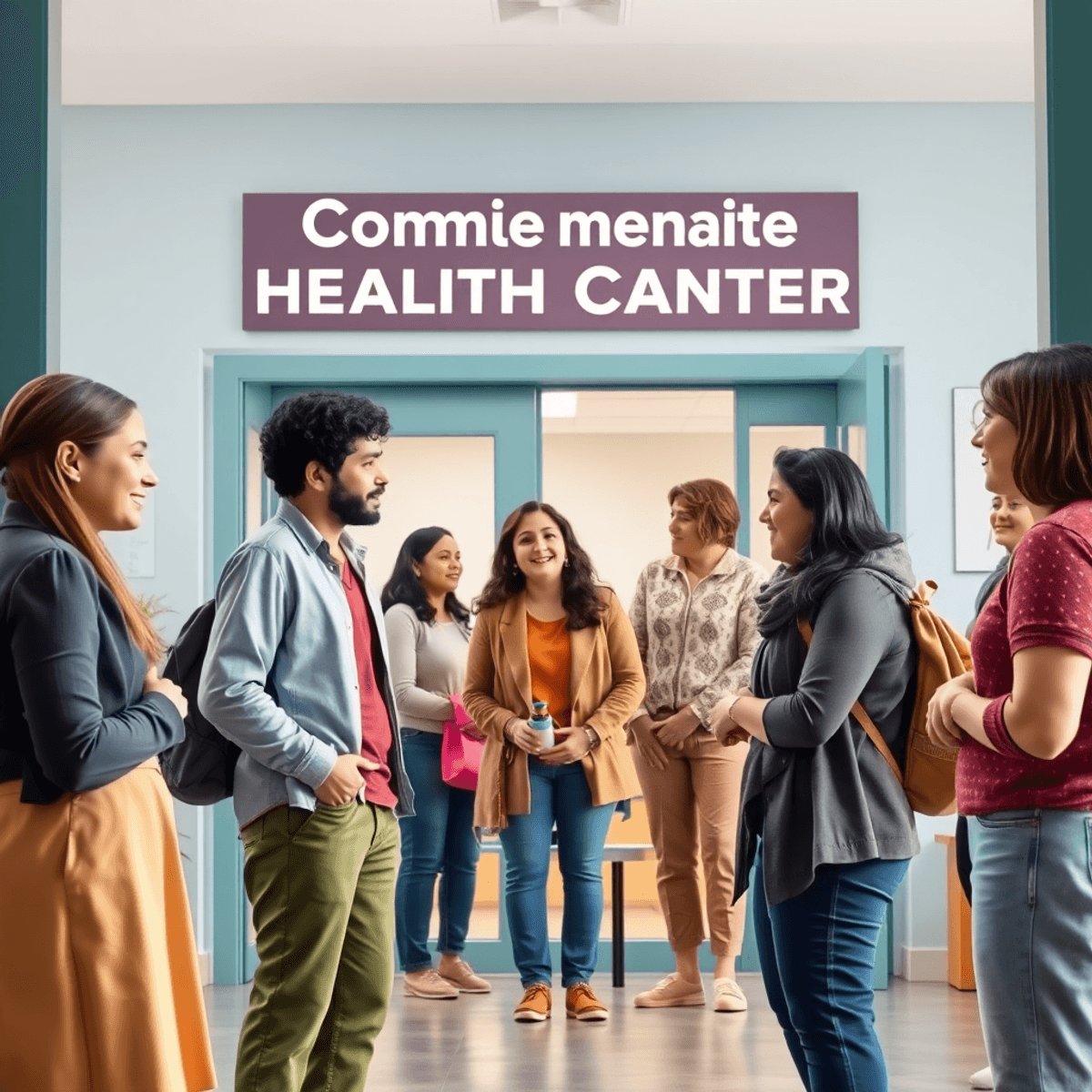Living without health insurance shouldn’t mean sacrificing your mental well-being. Free mental health services exist across the United States, designed specifically for uninsured individuals seeking professional support and care.
Mental health care remains essential for your daily functioning, relationships, and quality of life. Research shows that untreated mental health conditions can impact:
- Work performance and productivity
- Physical health and immune system
- Personal relationships and social connections
- Sleep patterns and energy levels
- Decision-making abilities
You can access numerous free mental health resources without insurance coverage:
- State-funded programs offering comprehensive mental health support
- Community health centers providing low-cost or free services
- National helplines connecting you to immediate assistance
- Specialized programs for specific groups (veterans, employees, etc.)
- Support groups and peer counseling services
These services typically include:
- Individual counseling and therapy
- Psychiatric medication management
- Crisis intervention
- Group therapy sessions
- Case management support
Your mental health matters – insurance status shouldn’t determine your access to essential care. The resources outlined in this guide will help you locate free mental health services in your area, ensuring you receive the support you need to maintain your emotional well-being.
However, it’s important to remember that mental health is not solely influenced by psychological factors; physical health plays a significant role too. For instance, prolonged use of certain medications like Ozempic can lead to unexpected changes in your body such as feeling full hours after a meal. Similarly, if you’re considering switching from Jardiance to Ozempic, it’s crucial to understand the key considerations involved in such a decision.
Moreover, maintaining good physical health can also help improve your mental well-being. This includes adopting a healthy diet that can boost your immunity during seasonal changes or understanding how certain gut microbes could be causing issues like constipation, which in turn could affect your overall well-being.
Lastly, don’t forget about self-care routines. Exploring the latest breakthroughs in skincare technology can also contribute positively to your mental state by enhancing your self-esteem and body image.
State-Funded Programs
State-funded mental health programs are crucial for uninsured individuals looking for professional help. These programs work through specialized mental health facilities, like the ones provided by Freeborn County Mental Health Center, and community centers in various states.
Key Services Available Through State Programs:
- Individual and group therapy sessions
- Crisis intervention services
- Psychiatric evaluations
- Medication management
- Case management support
- Substance abuse treatment
Many states use a sliding fee scale based on income levels, allowing some services to be completely free for eligible individuals. The Tennessee Behavioral Health Safety Net (BHSN) program exemplifies this approach, providing comprehensive mental health care to uninsured adults who meet specific income requirements.
Outpatient Services Include:
- Regular counseling appointments
- Telehealth options for remote access
- Emergency mental health services
- Peer support programs
- Rehabilitation services
The benefits of state-funded programs extend beyond basic mental health care. These programs often integrate with other social services, creating a comprehensive support network for uninsured individuals. You’ll find assistance with:
- Housing resources
- Employment support
- Educational opportunities
- Social skills development
- Community integration services
State programs typically maintain partnerships with local healthcare providers and organizations, expanding their reach and service capabilities. This collaborative approach ensures you receive consistent care regardless of your insurance status.
In addition to mental health support, these state-funded programs may also offer resources for managing chronic conditions. For instance, individuals struggling with diabetes can benefit from nutritional guidance provided by community health workers.
Moreover, if you’re dealing with weight management issues, state-funded programs may provide access to information about medications like Phentermine or Ozempic, which are often used in such cases. However, it’s crucial to understand the potential risks associated with these medications, such as the gastrointestinal side effects linked to Ozempic.
For those considering alternative methods for weight loss, resources on safe practices like the 96-hour fast could also be available through these programs.
Lastly, state-funded programs may also provide information on innovative treatments such as NAD+ injections, known for their potential anti-aging and cognitive enhancement benefits. It’s important to note that these programs adhere to strict standards as outlined in the CCBHC criteria, ensuring quality care across all services offered.
Community Health Centers and Free Clinics
Community health centers serve as vital healthcare hubs, providing accessible mental health services to uninsured individuals. These centers operate on a sliding fee scale, adjusting costs based on your income and ability to pay – some patients may receive care at no cost.
Free clinics rely on dedicated volunteer healthcare providers, including:
- Licensed therapists
- Clinical psychologists
- Psychiatric nurse practitioners
- Mental health counselors
The services available at these facilities typically include:
- Individual counseling sessions
- Group therapy programs
- Mental health screenings
- Crisis intervention
- Medication management
- Substance abuse treatment
- Case management services
Many centers offer specialized programs targeting specific mental health conditions such as those provided by Southside Behavioral Health. These programs might include:
- Anxiety management workshops
- Depression support groups
- PTSD treatment
- Stress reduction classes
- Family counseling
You’ll find these facilities staffed with culturally competent professionals who understand diverse community needs. Most centers provide language interpretation services and flexible scheduling options, including evening and weekend appointments.
To access services, you’ll need to:
- Bring proof of residence
- Show income documentation
- Complete an initial assessment
- Schedule a consultation with a mental health professional
These centers maintain strong connections with local healthcare networks, enabling seamless referrals to specialized services when needed.
In addition to mental health services, these centers often emphasize the importance of proper hydration for overall well-being, which can significantly impact cognitive performance and weight management.
Moreover, they also provide essential resources related to women’s health, offering expert advice on wellness, reproductive health, and preventive care.
Some community health centers even introduce patients to innovative health trends such as Butterfly Milk, known for its antioxidant properties and benefits for eye health.
It’s also worth noting that positive childhood experiences can play a crucial role in shaping children’s heart health, highlighting the need for comprehensive care that addresses both mental and physical health.
Lastly, many of these centers promote healthy lifestyle choices such as adopting plant-based diets which have long-term health benefits.
National Resources – SAMHSA
SAMHSA (Substance Abuse and Mental Health Services Administration) is a crucial resource for Americans seeking free mental health support. This federal agency has a wide range of mental health resources specifically created for individuals without insurance.
Key SAMHSA Services:
1. 24/7 National Helpline: 1-800-662-4357
- Confidential treatment referrals
- Information services in English and Spanish
- Crisis counseling support
2. Behavioral Health Treatment Locator
- Online search tool at findtreatment.gov
- Filters for payment options and treatment types
- Real-time availability updates
Finding Local Mental Health Facilities
SAMHSA’s treatment locator helps you find local mental health facilities that:
- Accept sliding scale payments
- Offer payment assistance programs
- Provide free services for eligible individuals
- Maintain flexible payment plans
Connecting with Specialized Mental Health Programs
The agency also connects you with specialized mental health programs through:
- State mental health departments
- Local recovery support groups
- Crisis intervention services
- Peer support networks
Additional Resources Beyond Direct Treatment Services
In addition to these services, SAMHSA’s resources go beyond direct treatment services. They provide educational materials, self-help guides, and prevention resources. The agency’s website features downloadable toolkits, research publications, and statistics to help you understand mental health conditions and treatment options.
Exploring Options for Weight Management Issues
For those facing weight management challenges, which can often be connected to mental health issues, exploring options like Sublingual Semaglutide could be beneficial. This non-invasive diabetes treatment not only improves patient adherence but also promotes effective weight loss.
Understanding Interactions with Alcohol for Weight Loss Medications
Moreover, if you’re considering weight loss medications such as Wegovy, it’s important to know how they may interact with alcohol. Our guide on Wegovy and Alcohol provides essential tips for safe consumption while using this medication.
Identifying Underlying Health Issues Affecting Weight Management
Lastly, it’s crucial to recognize that some underlying health problems may contribute to difficulties in managing weight. For example, gut microbes have been identified as hidden causes of constipation, which can complicate weight loss efforts. Understanding these factors can assist in finding more effective treatment strategies.
Additionally, it is important to consider the psychological aspects of weight management which are often intertwined with mental health issues. These psychological factors can significantly influence eating habits and lifestyle choices leading to weight gain or loss. Therefore, addressing these issues through professional help can pave the way for more successful weight management strategies[source]
Specialized Services for Specific Groups
Many organizations provide targeted mental health support for specific populations. Here’s what you need to know about these specialized services:
Employee Assistance Programs (EAPs)
- Free counseling sessions through your workplace
- Confidential mental health assessments
- Crisis intervention services
- 24/7 phone support for immediate assistance
- Referrals to long-term treatment options
Veterans Affairs Mental Health Services
- No-cost mental health care for eligible veterans
- PTSD treatment programs
- Substance use disorder treatment
- Suicide prevention services
- Both in-person and telehealth options
- Specialized counseling for military-related trauma
Indian Health Service Mental Health Programs
- Culturally sensitive mental health care
- Traditional healing practices integration
- Community-based behavioral health services
- Youth-focused mental wellness programs
- Substance abuse treatment services
- Crisis intervention specifically designed for Native communities
These specialized programs often provide additional support services beyond basic mental health care. The Veterans Affairs system includes family counseling services, while Indian Health Service programs incorporate cultural healing practices. EAPs typically extend their services to immediate family members of employees, creating a comprehensive support network for entire households.
In addition to traditional therapies, these programs can also incorporate holistic approaches that include dietary changes and exercise. For instance, menopause-friendly nutrition can be beneficial for women undergoing this transition, while building a balanced diet is essential for optimal health. Furthermore, intermittent fasting has been shown to have positive effects on metabolic health.
Moreover, it’s important to highlight the significant impact of physical activity on mental well-being. Regular exercise has numerous benefits for mental health, enhancing the effectiveness of these specialized mental health programs.
Evidence-Based Practices and Support Services in Free Mental Health Care Settings
State-funded programs and community health centers implement proven therapeutic approaches to deliver effective mental health care. These evidence-based practices include:
- Cognitive Behavioral Therapy (CBT) – A structured approach helping you identify and change negative thought patterns
- Dialectical Behavior Therapy (DBT) – Skills-based therapy teaching mindfulness and emotional regulation
- Trauma-Informed Care – Treatment recognizing the impact of past trauma on current mental health
- Motivational Interviewing – Client-centered counseling style that helps you find internal motivation for change
In some cases, medications like Ozempic may be prescribed to manage co-existing conditions such as Type 2 diabetes, which can often accompany mental health issues. However, it’s essential to understand the potential implications, especially for those who are pregnant.
Peer support services complement these clinical approaches by connecting you with individuals who have personal experience managing mental health challenges. These trained peer specialists:
- Share recovery strategies based on lived experience
- Provide emotional support during difficult times
- Help navigate mental health systems and resources
- Demonstrate that recovery is possible through their own examples
Research shows peer support significantly improves:
- Treatment engagement
- Hope and empowerment
- Social functioning
- Quality of life
Many free mental health programs integrate both evidence-based clinical treatments and peer support services to create comprehensive care plans tailored to your specific needs and circumstances.
Additionally, exploring alternative therapies such as ketamine for anxiety might be beneficial for some patients. It’s crucial to consider all available options while also focusing on overall wellness, which includes aspects like sleep and relaxation.
Practical Considerations When Seeking Free Mental Health Services Without Insurance
Getting to your mental health appointments can be challenging without reliable transportation. Many organizations recognize this barrier and provide practical solutions to help you reach your care providers.
Transportation Assistance Options:
- Medicaid Non-Emergency Medical Transportation (NEMT) services
- Local community shuttle programs
- Volunteer driver networks
- Ride-sharing vouchers
- Bus pass programs
Steps to Access Transportation Help:
- Contact your local mental health center to ask about transportation assistance
- Check with your county’s Department of Health and Human Services
- Research local non-profit organizations that offer ride services
- Ask about telehealth options when transportation isn’t available
Many community mental health centers partner with local transportation services to ensure you can attend your appointments. These programs often include door-to-door service and can accommodate special needs or disabilities.
Tips for Transportation Planning:
- Schedule rides at least 48 hours in advance
- Keep a backup transportation option ready
- Save important contact numbers in your phone
- Maintain a calendar of scheduled pickup times
- Request evening or weekend appointments if regular transportation is unavailable
Some programs also offer gas cards or mileage reimbursement if you have access to a vehicle but struggle with fuel costs. Your mental health provider can help you explore these options and connect you with the right resources.
Conclusion
Your mental health matters, with or without insurance coverage. The path to accessing mental health services might seem challenging, but numerous free resources stand ready to support your journey toward well-being.
State programs, community health centers, SAMHSA resources, and specialized services create a network of support designed to meet diverse needs. These programs exist because mental health professionals and organizations recognize that quality care should be accessible to everyone.
Take action today:
- Contact your state’s mental health department
- Visit local community health centers
- Call SAMHSA’s helpline at 1-800-662-4357
- Check if you qualify for specialized programs through VA or IHS
- Ask about workplace EAP benefits
Remember: Seeking help demonstrates strength, not weakness. The resources mentioned throughout this guide serve as stepping stones to better mental health. Your well-being deserves attention, and these free services exist to ensure you receive the care you need.
FAQs (Frequently Asked Questions)
What free mental health services are available for individuals without insurance?
Uninsured individuals can access free mental health services through state-funded programs, community health centers, free clinics, and national resources like SAMHSA. These options provide various outpatient services and support to ensure mental health care is accessible even without insurance.
How do state-funded programs support mental health care for uninsured people?
State-funded programs offer outpatient mental health services designed to assist uninsured individuals. These programs provide essential support and treatment options at low or no cost, helping to bridge the gap in mental health care access for those without insurance coverage.
What role do community health centers and free clinics play in providing free mental health care?
Community health centers and free clinics utilize volunteer healthcare providers to deliver low-cost or free mental health services. They offer a range of treatments and support, making mental health care accessible to uninsured individuals within their communities.
How can SAMHSA help me find free or low-cost mental health services near me without insurance?
The Substance Abuse and Mental Health Services Administration (SAMHSA) provides a national helpline and an online treatment locator specifically designed to assist uninsured individuals in finding free or affordable mental health care options nearby.
Are there specialized free mental health services available for specific groups like veterans or American Indian/Alaska Native individuals?
Yes, specialized services include Employee Assistance Programs (EAPs) at workplaces, Veterans Affairs mental health services for military veterans, and the Indian Health Service which offers tailored mental health options for American Indian/Alaska Native populations.
What practical support is available when seeking free mental health services without insurance?
Practical considerations such as transportation assistance programs are often available to help remove barriers to accessing necessary mental health care. Utilizing these supports can make it easier for uninsured individuals to attend appointments and receive consistent treatment.






